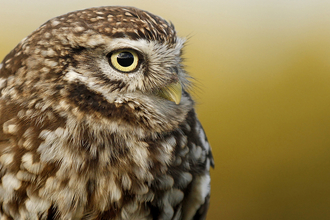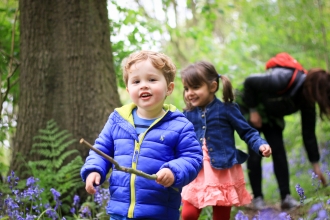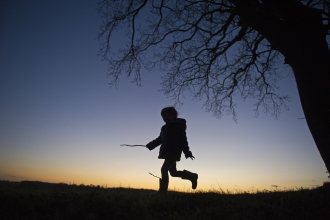People have been gardening specifically for the benefit of wildlife for over three decades, but if you are new to the idea, a good place to begin is to change the way you think about your garden, and start looking out of your window at your very own micro / mini nature reserve.
Gardens for wildlife: a New Year's resolution
If you decide that this New Year you would like to make a difference, then the garden is a great place to start.
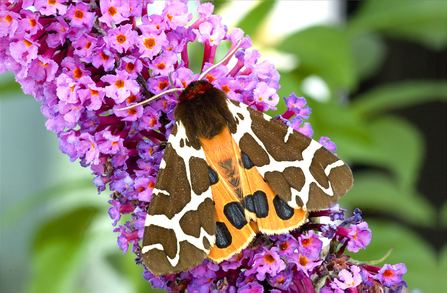
©Denis Jackson
If you consider that in the UK, our gardens count for 12% of the cultivated land and cover a larger area by size than all of our nature reserves combined, then it’s clear to see that if everyone made their gardens wildlife friendly it could make a massive difference in 2021.
We now know that even ‘ordinary’ gardens are extremely rich in species. This may seem odd, because most gardens are small and some are highly managed, but a single garden can hold exceptional diversity in a tiny area.
What makes our gardens so unique? It is the fact that you can have so many different plants in one relatively small area, some native and wild (occurring naturally in the UK) but mostly cultivated varieties of plants from different parts of the world.
Plants form the basis of any food web and so gardens can have a huge diversity of invertebrates, (the insects, molluscs and other animals without backbones) which then bring in the larger, more familiar predators that we enjoy seeing such as mammals and birds.
Our gardens tend to be quite busy places and are ‘managed’ a lot more than natural habitats, which in some cases can be a very good thing. Every time you cut the grass, or turn the compost heap or weed the beds, you are creating new opportunities for different plants bugs and animals to take advantage. On the other hand, habitats which are not managed, or ‘changed’ for any reason, slowly become less varied or ‘dynamic’ and as a result there are fewer diversity of species to be found there.
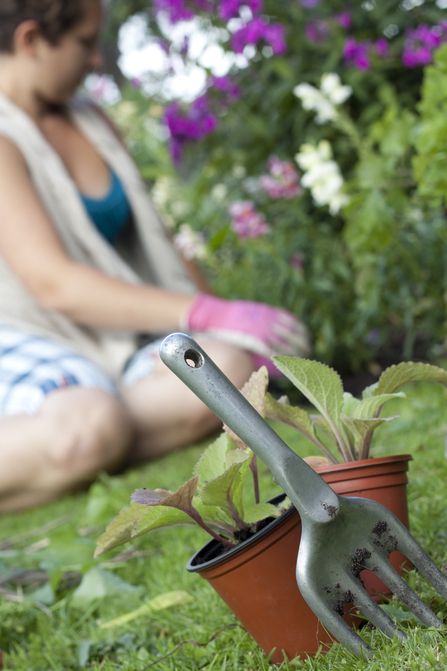
©Tom Marshall
Gardens consist of patchworks of short and tall vegetation, light and shaded areas, patches of wet and dry so that your garden consists of different areas similar to natural ‘habitats’. These areas in your garden all have edges, and wherever you have edges, you generally have a greater diversity of wildlife, because each of these neighbouring areas provide a living space for different species, but also a third group that specifically likes the edge habitat itself. Think of a hedgerow or the edge of a woodland or short next to long grass for example, all of which are often found in the garden.
The garden also mimics many other semi-natural habitats present (or absent. Sadly) in our countryside. The lawn in your garden looks like a small version of animal grazed grassland (if you refrain from adding weed killer and fertiliser you can very quickly end up with a much better ‘grassland’ in your lawn). The compost heap or pile of rotting logs at the bottom of your garden replaces a whole host of habitats often found in a woodland setting, including vital dead and decaying plant material, which sustain a huge array of decomposing bugs, fungi, reptiles amphibians and mammals.
To an alpine plant, rockeries and gravel paths look very similar to a ‘natural’ glacial moraine or limestone outcrop, and a well-designed garden pond can be home to just as many amazing wildlife as anything you will find in the countryside.

©Tom Marshall
So make your New Year’s resolutions right now to get set for wildlife gardening in 2021, and not only will you increase your own health and well-being, but you'll also make a positive contribution to reverse the decline in wildlife across north Wales.
Visit our Wildlife Gardening web page for more ideas
We've got lots of hints and tips on our website, and remember, if you become a member, you will be supporting our wonderful staff and volunteers to do so much more for wildlife outside of your garden wall.
Blwyddyn Newydd Dda! Happy New Year!


